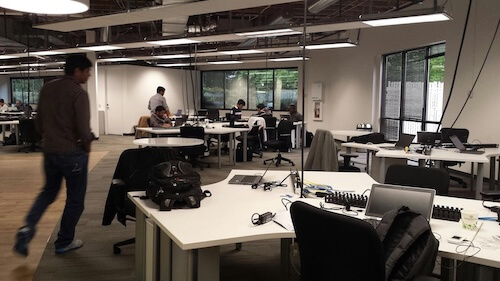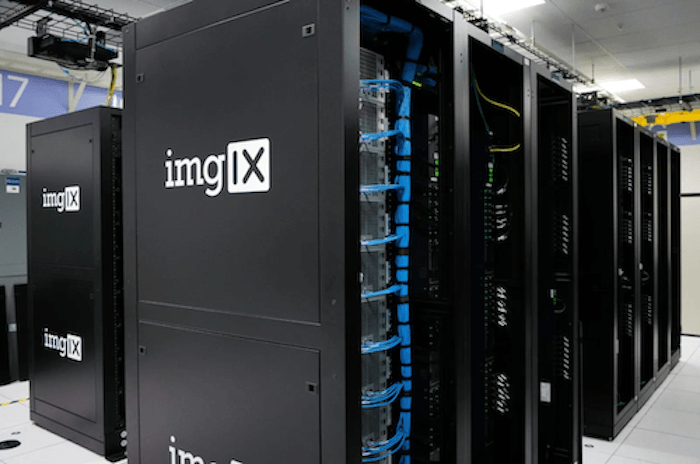Drive innovation with CIGen’s AI & ML development services on Azure
Harness the power of Azure to develop advanced AI and ML solutions that transform your business. Our expert team designs, builds, and deploys intelligent applications that enhance decision-making, automate processes, and drive innovation.
Partner with us to stay ahead in the competitive landscape with cutting-edge technology.

Why use AI & ML development in your enterprise software?
Stay ahead of the competition by developing state-of-the-art AI and ML solutions that keep you ahead of the curve.
Leverage data-driven predictive insights and predictive models to make informed decisions.
Manage your risks better in finance, and security through fraud detection, vulnerability detection, etc.
Facilitate superior performance and seamless 3rd party integrations.
Implement scalable AI and ML technologies that grow with your business.
Receive tailored AI and ML solutions that address your specific business challenges.
Comprehensive AI & ML development services for every business need
Leveraging Azure's robust capabilities, we aim to enhance your business efficiency, agility, and innovation, propelling your enterprise to thrive in a tech-centric marketplace.
Our AI strategy consultants conduct a thorough analysis of your business requirements and data landscape.
We provide guidance on the best Azure tools and services for your AI and ML needs.
We will create a detailed plan outlining the steps, timeline, and resources needed for successful AI and ML implementation.
Our AI-savvy software developers offer hands-on support to ensure the effective execution of the AI strategy.
Developing custom machine learning models using Azure Machine Learning.
Training models with relevant data and validate their accuracy.
Deploying models into your business processes for real-time insights.
Continuously monitoring and evaluate model performance to ensure accuracy and effectiveness.
Analyze and extract insights from text data using Azure Cognitive Services.
Develop intelligent chatbots that provide automated customer support.
Implement language translation services to expand your global reach.
Use sentiment analysis to understand customer opinions and improve service delivery.
Develop applications that recognize and classify images using Azure’s Computer Vision API.
Extract insights from video data for security, marketing, and more.
Implement object detection capabilities for enhanced automation and efficiency.
Utilize facial recognition technology for security, user identification, and personalized experiences.
Automate repetitive tasks to improve efficiency and reduce costs.
Integrate RPA with AI to enhance process automation.
Develop intelligent workflows that adapt to changing business needs.
Implement AI solutions to support and enhance decision-making processes.
Design AI solutions that address your unique challenges.
Develop custom AI applications that integrate seamlessly with your existing systems.
MLOps Azure services streamline the deployment, monitoring, and management of machine learning models in production, ensuring seamless scalability and enhanced performance
Continuously optimize AI solutions to ensure they deliver maximum value while embedding the mechanisms for seamless scaling.
Develop custom Generative AI models that align with your specific industry requirements.
Seamlessly integrate Generative AI into your existing systems and workflows for enhanced functionality.
Continuously fine-tune Generative AI models to improve accuracy, efficiency, and output quality.
Implement AI solutions with a focus on ethical considerations, ensuring responsible AI usage and compliance with industry standards.
Leveraging AI, ML and DP algorithms
Artificial Intelligence
AI involves creating systems that mimic human intelligence to perform tasks like decision-making, language processing, and visual recognition. On Azure, AI is powered by tools like Azure Cognitive Services and Azure Machine Learning, which enable businesses to build intelligent applications.
Common use cases include chatbots, sentiment analysis, and image recognition.
Machine Learning
ML is a subset of AI focused on building algorithms that allow systems to learn from data and improve over time without being explicitly programmed. Azure Machine Learning provides a comprehensive environment for developing, training, and deploying machine learning models at scale.
Typical ML use cases include predictive analytics, recommendation systems, and fraud detection.
Deep Learning
DL is an advanced branch of ML that uses neural networks with multiple layers to analyze complex patterns in large datasets. Azure supports DL with services like Azure Machine Learning and GPU-accelerated virtual machines, enabling the development of sophisticated models.
Common Deep Learning applications include natural language processing, image classification, and autonomous systems.
Ready to get your business up to speed
with AI / ML technology?
Partner with CIGen’s Azure experts to develop intelligent applications that transform your business operations and drive innovation. Let’s unlock the power of AI and ML to achieve your business goals - sooner and with fewer resources.
How key industries use AI
Artificial Intelligence and Machine Learning are revolutionizing industries by automating processes, enhancing decision-making, and driving innovation. Here’s how AI is making a significant impact across key sectors, enabling businesses to optimize operations, improve customer experiences, and stay ahead of the competition.
AI is transforming healthcare through predictive diagnostics, personalized treatment plans, drug discovery, and automated patient monitoring, helping to deliver more accurate and efficient care.
In banking, AI is used for fraud detection, risk management, personalized financial services, and automated customer support, improving security and customer satisfaction.
AI optimizes logistics through route planning, demand forecasting, warehouse automation, and real-time tracking, enhancing supply chain efficiency and reducing operational costs.
Marketing teams leverage AI for customer segmentation, personalized marketing campaigns, predictive analytics, and sentiment analysis, driving better engagement and ROI.
AI powers retail by enabling personalized shopping experiences, demand forecasting, inventory management, and dynamic pricing, leading to improved customer satisfaction and profitability.
In manufacturing, AI facilitates predictive maintenance, quality control, supply chain optimization, and automation of production processes, resulting in increased efficiency and reduced downtime.
AI enhances finance by enabling automated trading, risk assessment, personalized investment advice, and fraud detection, ensuring smarter financial decisions and improved security.
AI in telecommunications is used for network optimization, predictive maintenance, personalized customer services, and fraud prevention, leading to better service quality and customer loyalty.
Azure AI capabilities we help embrace
Popular AI applications in business
App modernization success stories
Navigating Azure migration for enhanced business efficiency and growth
Explore our partnership with Skytech Control as we successfully migrated and modernized their complex asset management system to Azure’s serverless architecture. This case study delves into the innovative solutions and strategic insights that significantly enhanced operational efficiency and scalability.
Thanks to CIGen, we reduced our technical debt and received ample support for their strategic technical initiatives. The team has a great project management approach and always aims to improve their partnership with us. Moreover, their members are proactive and highly skilled.


AI/ML team experts
A savvy AI/ML software development team brings a wealth of experience and technical knowledge to every project. From data scientists uncovering critical insights to machine learning engineers deploying robust models, our team collaborates to deliver cutting-edge AI solutions tailored to your business needs. Depending on project requirements, team composition may include a mix of the following roles:
Data engineers build and maintain the infrastructure required for data collection, storage, and processing. They utilize Azure Data Factory, Azure Synapse Analytics, and other tools to create data pipelines that support AI and ML projects. Their work ensures that data is clean, accessible, and ready for analysis and modeling.
Data scientists are responsible for extracting valuable insights from large datasets. They utilize statistical methods, machine learning algorithms, and tools like Azure Machine Learning to build predictive models that drive business decisions. Their expertise lies in data exploration, feature engineering, and model evaluation.
Machine learning engineers specialize in designing, building, and deploying ML models. They work closely with data scientists to take models from development to production, ensuring scalability and performance using Azure services like Azure ML Pipelines and Azure Databricks. Their role includes optimizing algorithms and integrating models into existing systems.
AI solutions architects design the overall architecture of AI-driven systems, ensuring that all components work seamlessly together. They leverage Azure’s cloud infrastructure to create scalable, secure, and efficient AI solutions tailored to specific business needs. Their role includes selecting the right tools, defining data pipelines, and ensuring that AI models are integrated effectively.
AI & ML development lifecycle tailored for maximum impact
Our seasoned AI and ML team leverages Azure’s robust tools and frameworks to deliver high-impact solutions tailored to your business needs.
Identify business challenges and define the specific AI/ML objectives aligned with your goals.
Gather and preprocess data, ensuring it's clean, labeled, and ready for model training.
Choose the appropriate ML algorithms and train models using the prepared data to achieve optimal accuracy.
Test and validate the model's performance using various metrics to ensure it meets the required standards.
Deploy the trained model into your existing systems, ensuring seamless integration and operational efficiency.
Continuously monitor the model's performance in production and make necessary adjustments for sustained accuracy.
Regularly update the model with new data, fine-tune algorithms, and scale the solution to handle growing needs.
Azure AI/ML enablement FAQ
We aim to supply our clients with exhaustive information about the way we engage in partnership for ease of doing business and transparency. We’ve collected a few facts that help you understand our processes.
Azure AI enablement refers to the integration of Microsoft Azure’s AI capabilities into your business systems to drive smarter, faster, and more efficient operations. Key benefits include:
- Automated decision-making: Leverage machine learning models to make data-driven decisions in real time.
- Enhanced customer experience: Deploy chatbots, recommendation engines, and sentiment analysis tools powered by Azure AI.
- Process optimization: Automate routine tasks such as document processing, anomaly detection, and predictive maintenance.
- Advanced analytics: Use Azure Cognitive Services and Azure Machine Learning to uncover patterns, trends, and insights from your data.
- Scalable AI infrastructure: Access powerful tools and models without building your own infrastructure—reducing time-to-value.
- AI model lifecycle management: Build, train, deploy, and monitor AI models securely within a governed Azure environment.
By enabling Azure AI, your business gains a strategic advantage in innovation, agility, and operational efficiency.
Our Azure AI software development services cover a wide range of intelligent solutions, including predictive analytics, custom ML models, recommendation systems, real-time anomaly detection, intelligent document processing, and chatbot integration — all built on Azure Machine Learning, Azure Cognitive Services, and Azure OpenAI.
Azure Machine Learning can help streamline and optimize business operations through data-driven automation and predictive insights. Key applications include:
- Predictive maintenance: Forecast equipment failures before they occur to reduce downtime and repair costs.
- Demand forecasting: Anticipate customer demand more accurately to improve inventory planning and reduce waste.
- Customer segmentation: Group customers based on behavior and preferences to personalize marketing and service strategies.
- Process automation: Use ML models to automate repetitive tasks such as document classification or data entry.
- Fraud detection: Identify unusual patterns and flag potentially fraudulent transactions in real time.
- Quality control: Detect defects or anomalies in products using computer vision and ML-driven inspection.
- Workforce optimization: Predict staffing needs and allocate resources more efficiently based on historical trends.
These capabilities can be embedded into existing workflows via Azure ML pipelines, APIs, and integrations with tools like Power BI, Azure Data Factory, and Logic Apps.
Azure-based computer vision solutions can be applied across a wide range of industries to automate processes, enhance safety, and improve decision-making. Common use cases include:
- Object detection and classification: Automatically identify and categorize items in images or videos.
- Facial recognition: Verify identities, enable access control, or enhance customer experiences.
- Optical character recognition (OCR): Extract text from scanned documents, invoices, receipts, and forms.
- Video surveillance analytics: Monitor real-time video feeds to detect anomalies, motion, or unauthorized access.
- Defect detection in manufacturing: Identify flaws or inconsistencies in products during quality control.
- Retail shelf monitoring: Track stock levels, pricing accuracy, and product placement.
- Vehicle and license plate recognition: Automate traffic monitoring, toll collection, or parking enforcement.
- Medical imaging analysis: Assist in diagnosing conditions from scans such as X-rays, MRIs, or CTs.
These solutions are powered by services like Azure Computer Vision, Custom Vision, and Azure Video Indexer, making them scalable, secure, and easy to integrate into existing workflows.
Azure AI provides robust NLP capabilities through services like Azure Language Understanding (LUIS) and Azure Text Analytics. These tools enable sentiment analysis, entity recognition, translation, and intent classification — helping businesses automate customer support, analyze unstructured data, and build intelligent conversational interfaces.
Yes, we offer end-to-end integration of Azure AI speech recognition into applications and workflows. Using Azure Speech Services, we build voice-to-text systems, real-time transcription tools, speaker identification, and voice command features, supporting multilingual capabilities and industry-specific vocabulary customization.
Our development process for Azure AI/ML projects begins with a discovery phase to identify business needs and data sources. We then move into data preparation, model development using Azure Machine Learning, validation, and deployment. Throughout the project, we ensure security, scalability, and compliance with industry standards, followed by model monitoring and support.
Let’s power your next innovation with scalable Azure AI & ML capabilities.






